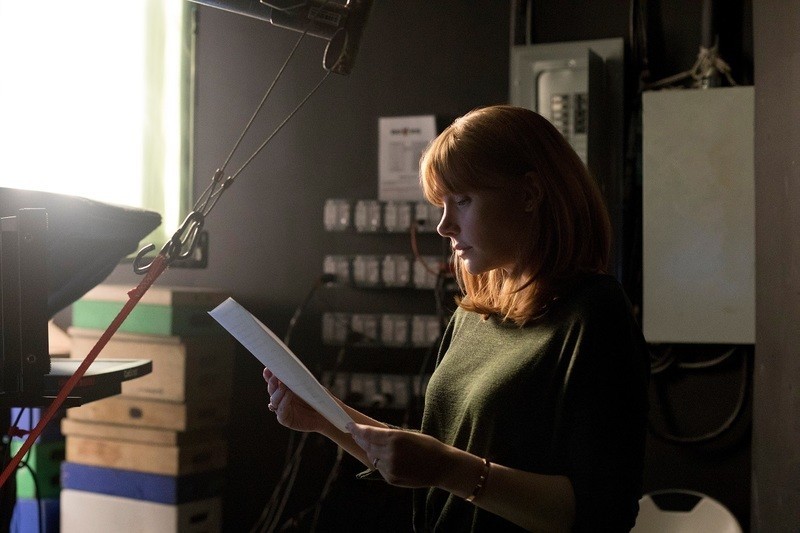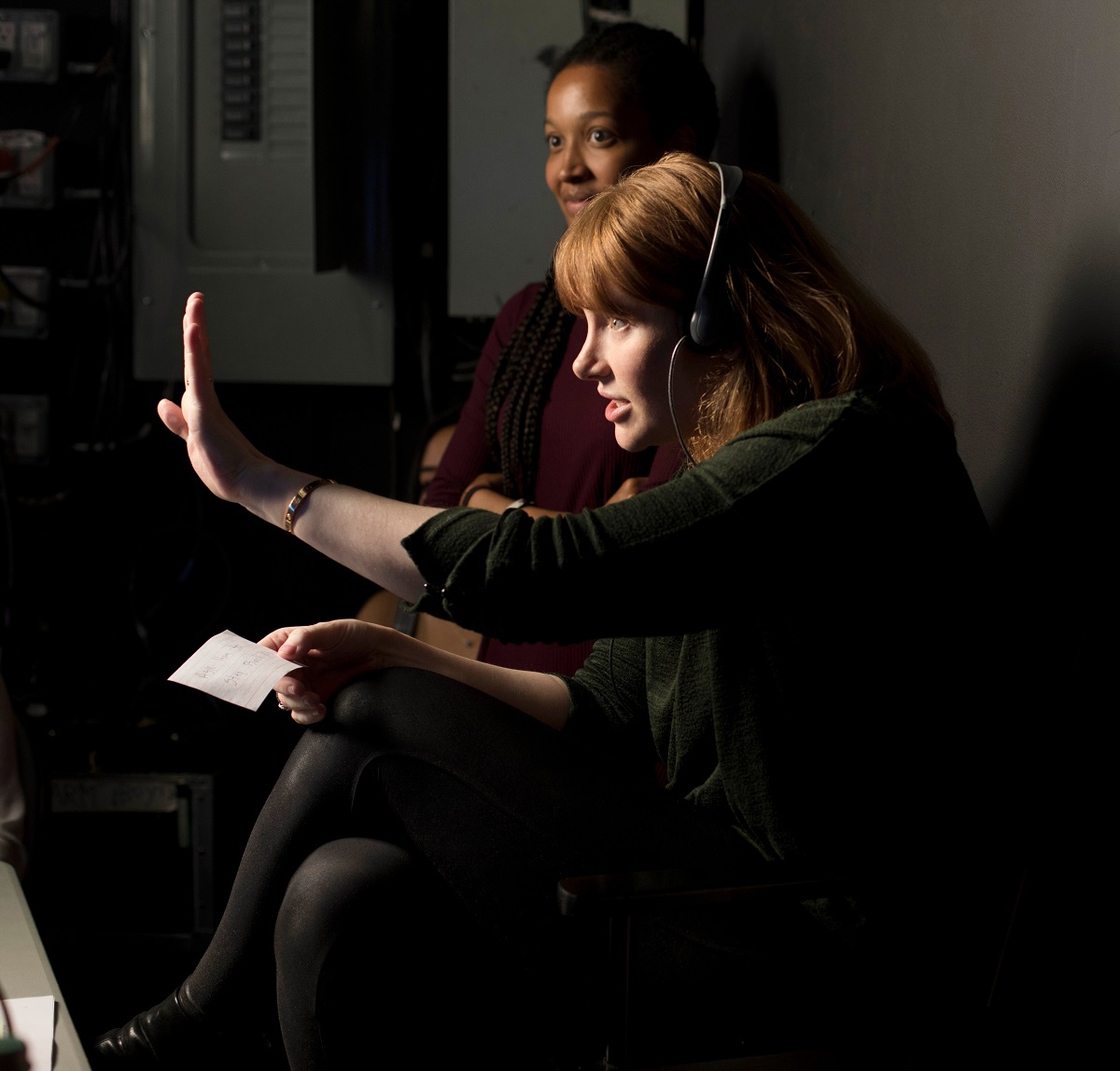Bryce Dallas Howard’s new documentary is about the universal topic of fatherhood, but “Dads” is as personal as it gets. The film includes interviews with celebrities like Will Smith and Jimmy Kimmel and intimate glimpses of the lives of a variety of fathers and children. But at its heart are her interviews with her own father, actor/director Ron Howard, and his father, the late actor Rance Howard, and with her brother, who at the time of the interview was about to become a first-time father himself. In an interview, Howard talked about the changing role of fathers, and what it was like as a child to visit her father on film sets and to see her own stories on screen in her dad’s movie, “Parenthood.”
There have been fathers as long as there have been people, but I get the sense that in some ways the last few generations have re-invented what it means to be a father, with more day-to-day involvement in child care, especially for babies and young children.
That’s certainly the impression that I got from the gentlemen who I interviewed. What it seems like is that there was a transformation in expectations of fathers, and a transformation in how fathers perceived their role, within the home, within the family dynamic. But in terms of caring fathers, loving fathers, present fathers, there were exceptions of course, but many of the dads I interviewed themselves had remarkable dads, even though it might have seemed to be a more traditional family dynamic. They were great dads, involved dads, present dads, and ultimately they raised sons who themselves went on to be very involved and evolved dads. So, it was great to see that, because it’s not like the old way was wrong and the new way is right; it’s just a beautiful transformation that’s occurred over generations that’s really evolution. We’re witnessing evolution. It just gets better and better. For society to embrace men as caregivers, and to support them, that’s only going to be a good thing.
What are some of your favorite fathers in movies?
Personally I love, of course, Steve Martin in all of the father movies that he does, which is so ironic because he didn’t become a father until much later in life. I’ve heard over and over again that he’s a wonderful father and so happy, because he played one many, many times in “Parenthood” and “Father of the Bride” and many more.
“Parenthood” was such a huge influence for me as a kid because I was seven when the movie was made, and I saw my childhood experiences—childhood being seven years up to that point—I saw it acted out, dramatized. It was so thrilling and empowering, and like living in another dimension that I’ve since learned other people don’t necessarily inhabit. Certainly, it was about the conversation about what does it take to be a parent, to be a father, to be a mother. What happens when that occurs, what’s lost, what’s gained, et cetera. That’s been something that’s been thematically embedded into the Howard family dinner conversations since that point. I think that’s kind of carried on now, in a way, with “Dads,” because my kids were in the editing room and they were giving me critiques. My husband was involved.
An aspect of this was really inspired by my son, because we lived across the street from a family where the mother worked and the father was a stay-at-home father, and the kids were a boy and a girl who were the same age as our kids. And my kids loved going over there and hanging out with them, and playing and all that kind of stuff. Jay, the father, homeschooled the kids. It was just awesome. They got to kind of piggyback on his homeschooling education and curriculum. They were so lucky for it, and when my son was about seven years old, he said, “I know what I want to be when I grow up.” And I said, “What?” And he said, “A stay at home Dad.” And I realized that if he hadn’t seen Jay, he never would have been able to put words to what he felt, what he desired, what he wanted. To be honest, he’s now 13 and I can really see that happening for him. He is a caring, nurturing, sweet kid. If there are kids or animals in the room, that is where he is. And so it’s either that for him or a really great coach. A soccer coach or something, because he has a calling to care for children, absolutely, that I see in him. A generation ago, would that have been a possibility? It would have been rare. It’s still quite rare, but it would have been far, far rarer.

I love the way that you brought your own family into the movie. I was very struck by your grandfather’s story of your father as a young child filming the pilot of “The Andy Griffith Show.” We really get a sense of how protective he was as a father. Tell me a little bit about interacting with your own family for this film.
I had shot that footage of my granddad several years prior for a short documentary about the ‘60s for Vanity Fair. I asked him about my dad’s childhood, and I thought that there might be something there for this film. My dad was like, “No, no, we don’t want to put our family into this. Not a good idea.” Then when we were going along, I sought out that footage, saw that story, and I was like, “Oh my gosh, I’d forgotten about that.” Andy Griffith was another great dad. Interestingly, in the show there needed to be no mother, in order for him to be that engaged as a father. It wouldn’t have represented the dynamic between a father and son as much if a mother had been there.
And then I kept saying that I wanted to interview an expecting father, but thinking that would be difficult to get. And then my brother and sister-in-law got pregnant, and shared the news with us, and I was like, “Oh my gosh, this is perfect!” So, he became the expecting father and through the Vanity Fair footage my grandfather got to be involved, and of course my own dad. Which was ultimately very meaningful and very scary for my dad, and he was just terrified, absolutely terrified.
How did you make the non-performer subjects of the film feel so comfortable sharing such intimate moments on camera?
This is how we handled it: I wasn’t there. I did not conduct those interviews in person. We realized that because I am—this is a slightly obnoxious thing to point out—but because these are kids in these homes, and because I’ve been in “Jurassic” movies and I had done “Spider-Man“ and “Twilight,” “Pete’s Dragon,” kids’ movies, with me it would be impossible for everyone to forget that the camera was there. It would potentially be really distracting in a way that could not be overcome in the course of three days, which is what we had for shooting, in order to get these families to feel totally comfortable and at ease.
And so, there’s a DP named André Lascaris who I have worked with for more than ten years. He is a trusted, incredible collaborator. He’s a documentary filmmaker as well, and I knew that he was going to be able to go in there and get everything. And then one of our producers, Walter Matteson, who was a field producer, went in and conducted all of the interviews. I was in contact the whole time, but afterwards receiving all the footage, A: I felt like I was able to be a lot more objective, because I wasn’t physically in the room in terms of the edit, and B: There’s no way that we would have been able to get that footage in the way that was really, really important, where the filmmakers are able to be a fly on the wall.
And so that was incredibly helpful, because also I was directing season one of “The Mandalorian” and I was conducting all the interviews with the celebrity comedians on the weekends, in LA and in New York, while shooting and then subsequently editing and doing post on “Mandalorian.” The crew was able to go during the week. When we identified a hero dad, they would travel and film them for three days, which was really awesome. So that’s how that all worked out.
I really laughed at some of the clips of kids and especially the teenagers. Where did you find them?
YouTube. It was so funny. Basically, we had a producer continually throughout pre-production, production, post-production, sourcing videos online and fact checking, calling the people and getting the rights, and oftentimes not getting the rights. So that was something that was a continuous thing, and then sometimes when we were nearing the end, we’d be like, “OK, there’s a teenager section. We need more angry teenagers.” It was really important that when we were seeing kids and young people quote-unquote “misbehaving” in the film, it wasn’t as a byproduct of either drugs or disordered behavior, like someone on the autism spectrum, someone with extreme sensitivities, or disabilities or doing something dangerous.
The teen section was tricky, because there were a lot of videos with teens at parties, But I was like, “Nope. We’re not doing drunk teens. I’m not making this a platform to laugh at drunk teens.” So it even came down to, literally, us all emailing friends and family and being like, “Hey, do any of you guys have any funny videos of your kids that they would be cool with, anything where you captured them being naughty?” And so many of them were like, “Oh my gosh, yes, totally.”
What’s the best advice you ever got about directing?
I have been privy to some pretty rad advice throughout the years, because I specifically target directors who I admire. But you know what? It’s funny. The advice is actually not from any of them, it’s from André Lascaris, who’s the DP. Some of the “Dads” camerawork, like all the stuff that I shot with my family, with my brother and dad and stuff—that was just me with a C300 or something, shooting. André would give me tutorials in advance, and told me how to work the camera, and gave me some good principles to live by.
He says, “Whenever you’re on an image, count to ten. Because you want to be able to have at least seven seconds before cut, and you’re always gonna count a little bit too fast, and so always count to ten.” With interviews, he would always say, “Bryce, do not cut. Do not cut when you think you should cut. Always wait three extra beats.” It’s sort of a lesson in making space for something to happen, and to not be rushed, and to not just get what you think you need to get and be done with it. So, leave a little bit of buffer room for surprise, for humanity, for unexpected things to come out. I think that that’s the magic of what is possible with filmmaking.












